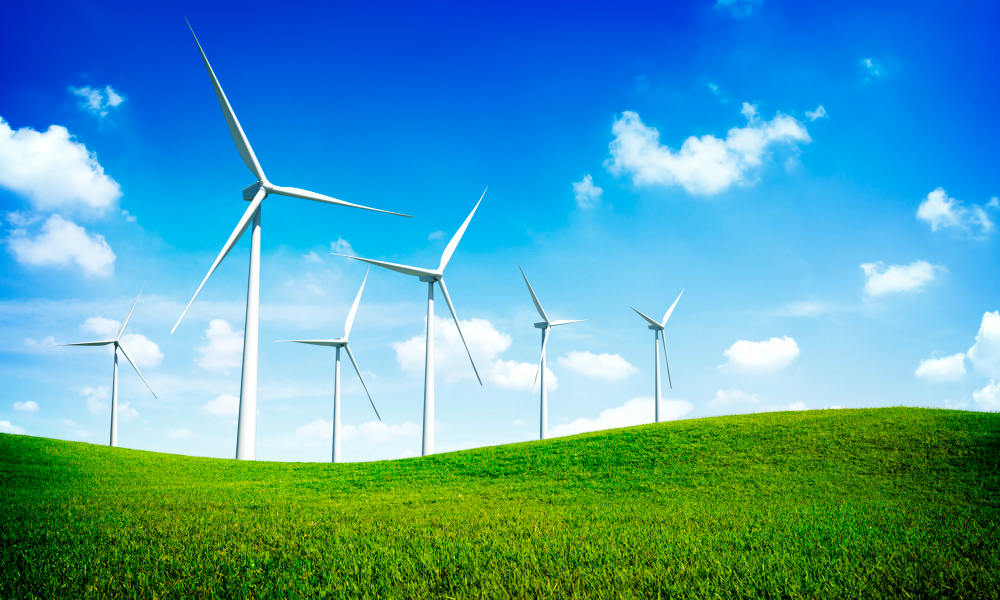Controversy in Poland over incoming coalition’s plans to loosen rules on building wind turbines
Plans by Poland’s incoming ruling coalition that would loosen rules on building wind turbines has sparked criticism from the country’s outgoing ruling Law and Justice (PiS) party as well as some experts.
They claim that, as well as reducing the distance new turbines can be built from homes and national parks, the legislation would also allow land to be expropriated in order to build them. PiS has also called for prosecutors and the anti-corruption authorities to investigate the potential influence of lobbyists.
The parties behind the bill, however, deny that it will allow expropriation. But they have also said that further work will be carried out to clarify the legislation.
On Tuesday, MPs from Civic Coalition (KO) and Poland 2050 (Polska 2050), two groups that are part of the coalition likely to form a new government later this month, submitted a bill on energy policy.
One element related to plans to freeze energy prices next year, which itself sparked controversy after prompting a significant fall in the share price of state energy giant Orlen. But another part – which would loosen regulations on the construction of onshore wind farms – also raised concern
Writing for the Basta Foundation, an NGO, Sławek Wodzyński said that the bill would allow “expropriation of private persons for the purpose of building wind power plants and other [renewable] investments, as [such] investments will be considered a public goal”.
He called the proposed change “a serious interference with property rights and citizens’ rights”. However, there remains dispute over whether expropriation would be possible under the proposed law, with lawyer Anna Kucińska telling news website Energetyka24 that it would not.
Another aspect of the plans that caused concern are changes to where wind turbines can be located. They could, for example, be built within 300 metres of national parks, down from the current requirement that they be placed a distance no less than ten times the height of the turbine.
The structures could also be placed within 300 metres of multi-family residential buildings and 400 metres of single-family ones, down from the current requirement of 700 metres. However, under the news rules the precise distance would depend on the amount of noise specific turbines produce.
That aspect of the plan was condemned by figures from the outgoing PiS-led ruling camp, which lost its parliamentary majority at October’s elections and is almost certain to be replaced by a new government by the middle of this month.
“Without consultations, without analyses, without preparation, KO and Poland 2050 politicians want to install large turbines next to Poles’ homes,” tweeted Prime Minister Mateusz Morawiecki. “Who will lose out? The Polish people. Who will benefit? Lobbyists.”
“If you don’t like it, or if some investor, probably foreign, falls in love with your plot of land you will be able to be expropriated to put up wind turbines there,” added Sebastian Kaleta, a deputy justice minister. “[They] wrote this law for the German wind turbine lobby.”
On Friday, the education minister, Krzysztof Szczucki, announced that PiS had submitted a request to the prosecutor’s office and the Central Anticorruption Bureau (CBA) “to check who is behind the bill on energy prices”.
However, in response to such claims, the head of KO’s parliamentary caucus, Borys Budka, said that suggestions the law would allow expropriations were “lies”.
He also accused PiS of hypocrisy, saying that its government has “introduced massive expropriations for investments that will never take place in Poland”. That was likely a reference to PiS’s flagship project to build a new “mega-airport” and transport hub in central Poland, which has involved expropriating land.
Paulina Hennig-Kloska of Poland 2050 – who is widely tipped to be the new environment minister – likewise called PiS’s claims an “absurd attack”. She suggested their actions were in Putin’s interests because he “wants to stop the energy transformation process in Poland”.
“There were no lobbyists when creating the wind farm regulations,” added Hennig-Kloska, quoted by Dziennik Gazeta Prawna. “We have prepared a very good law that requires clarification of the provisions to dispel doubts as to our intentions.”
Wladysław Kosiniak-Kamysz, the leader of the Polish People’s Party (PSL), another group that is part of the incoming ruling coalition, confirmed that there needed to be more “consultations” and “improvements” in the bill. But he also confirmed that “there will be no expropriations for wind farms”.
Before PiS came to power in 2015, Poland has one of Europe’s fastest growing onshore wind sectors. However, in 2016 it introduced tough new restrictions that made it difficult to build turbines.
However, this year the PiS majority in parliament approved a law to loosen those restrictions and make it easier for wind farms to be build.

